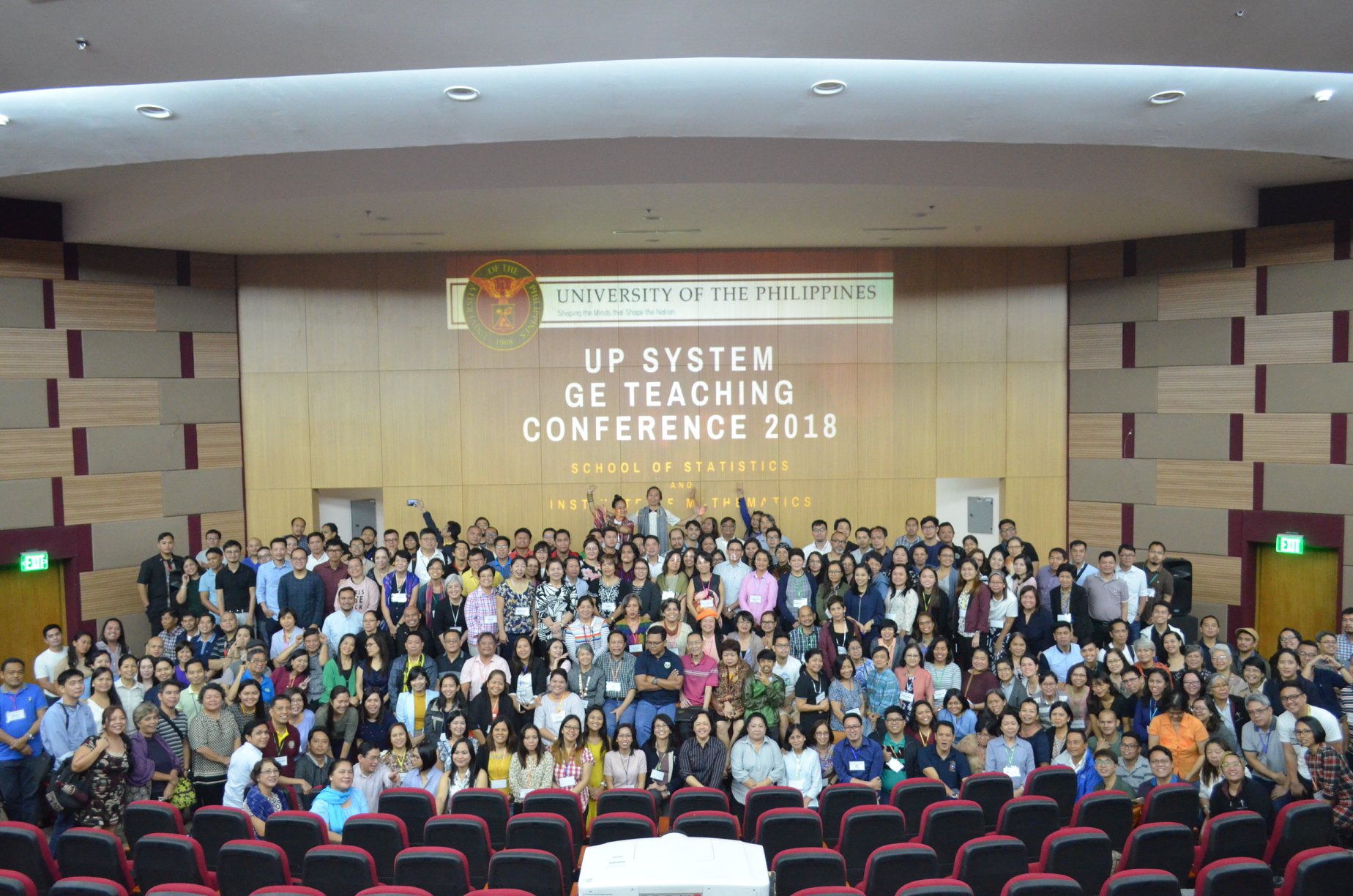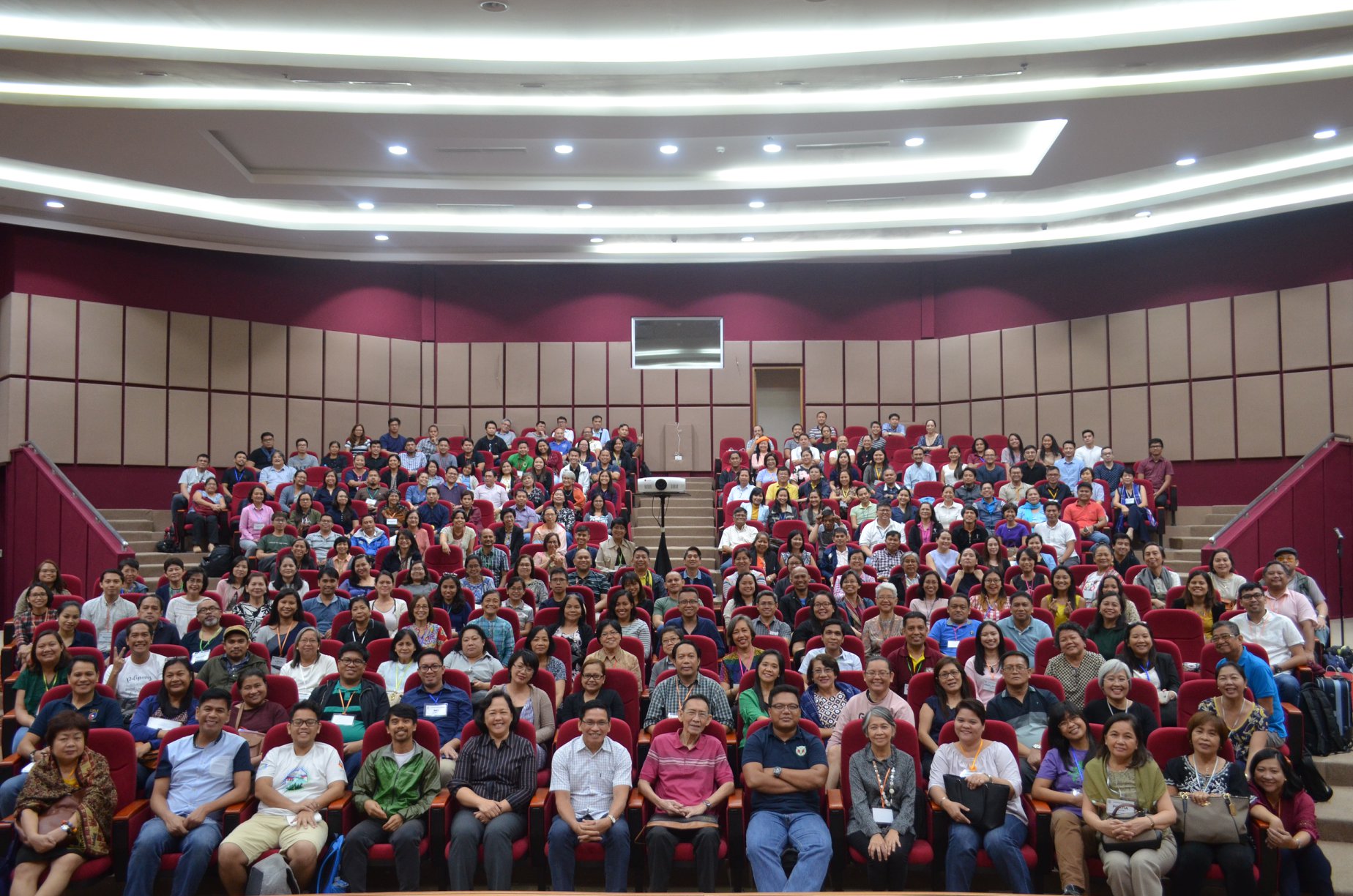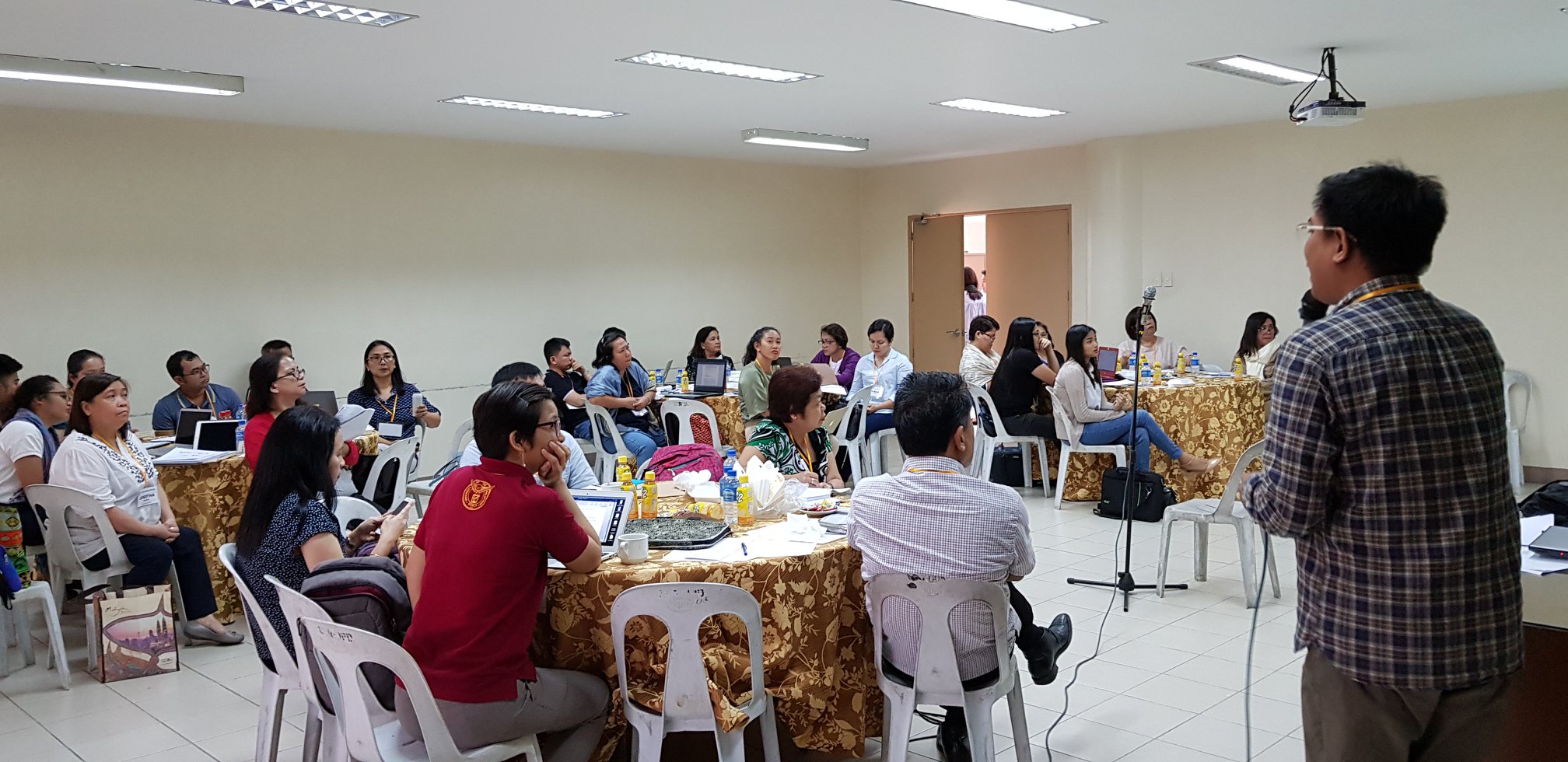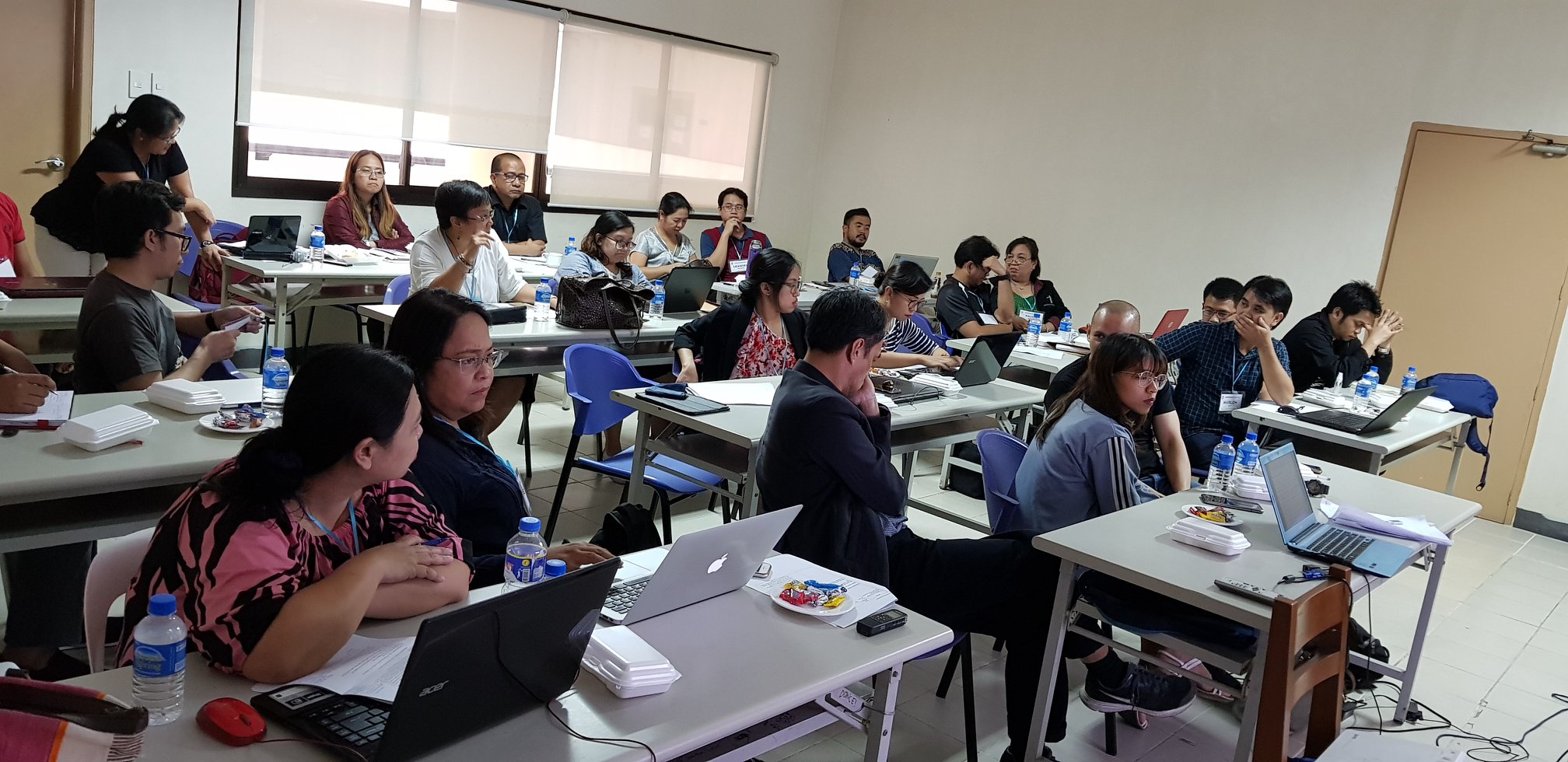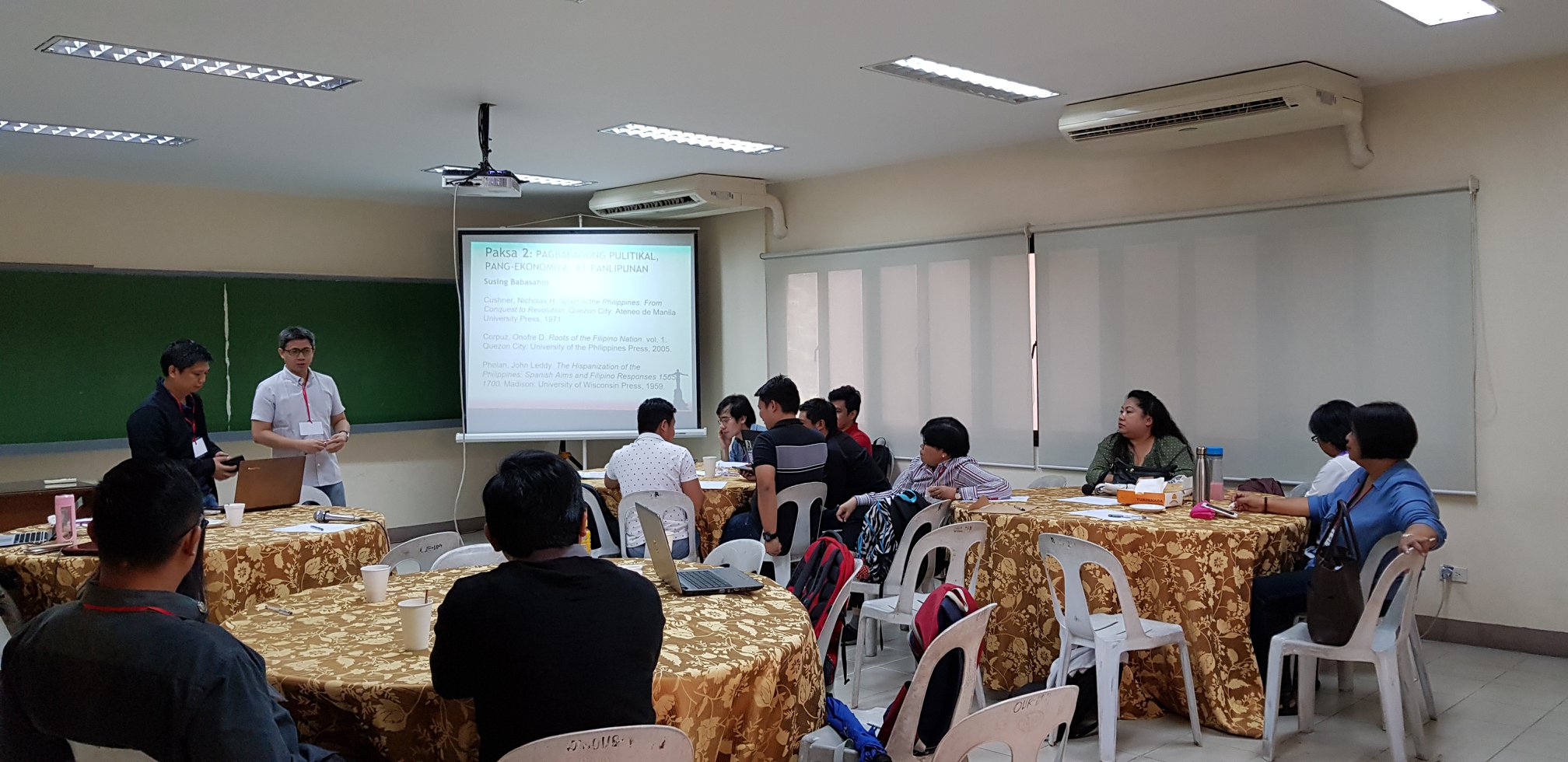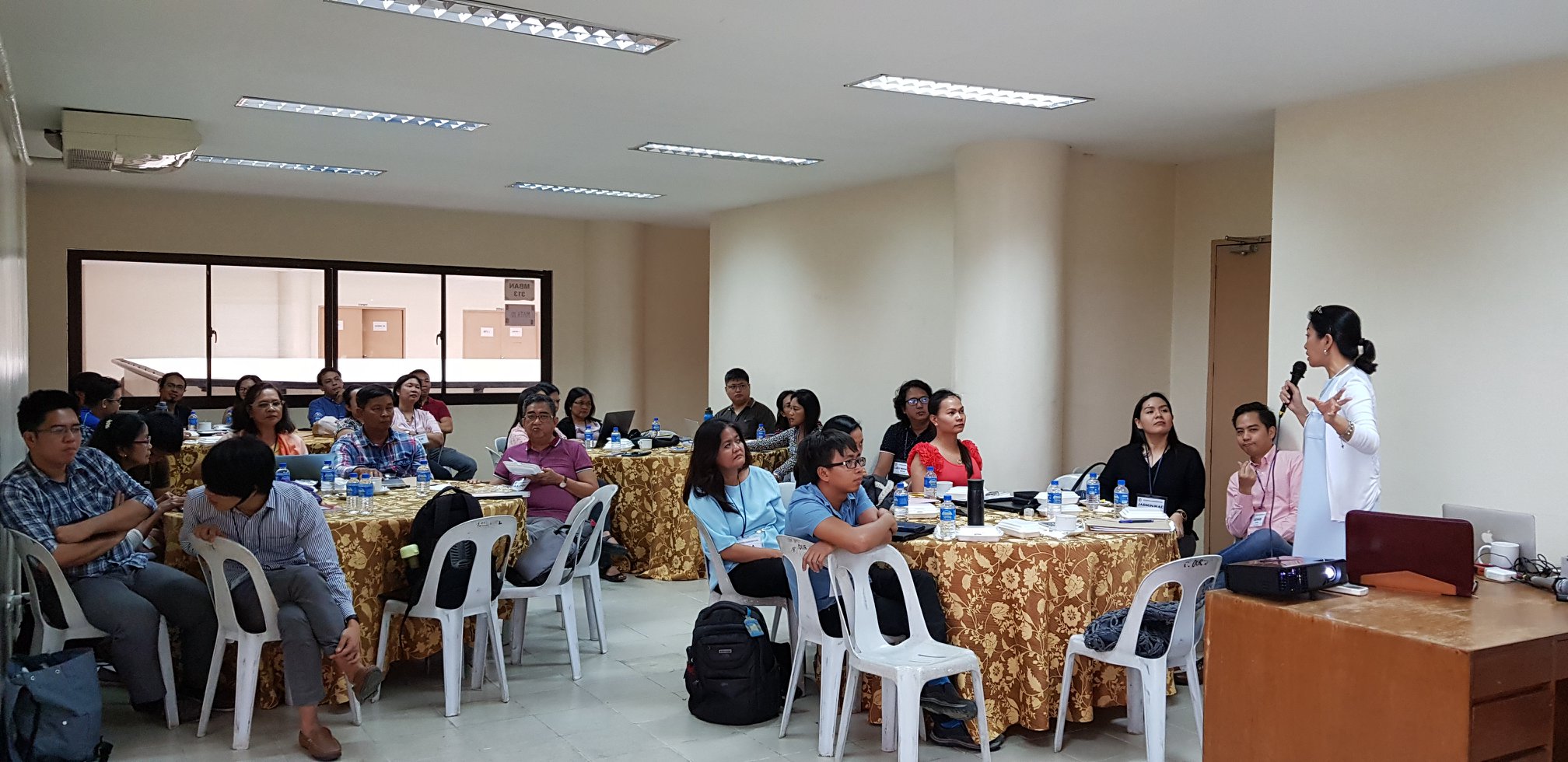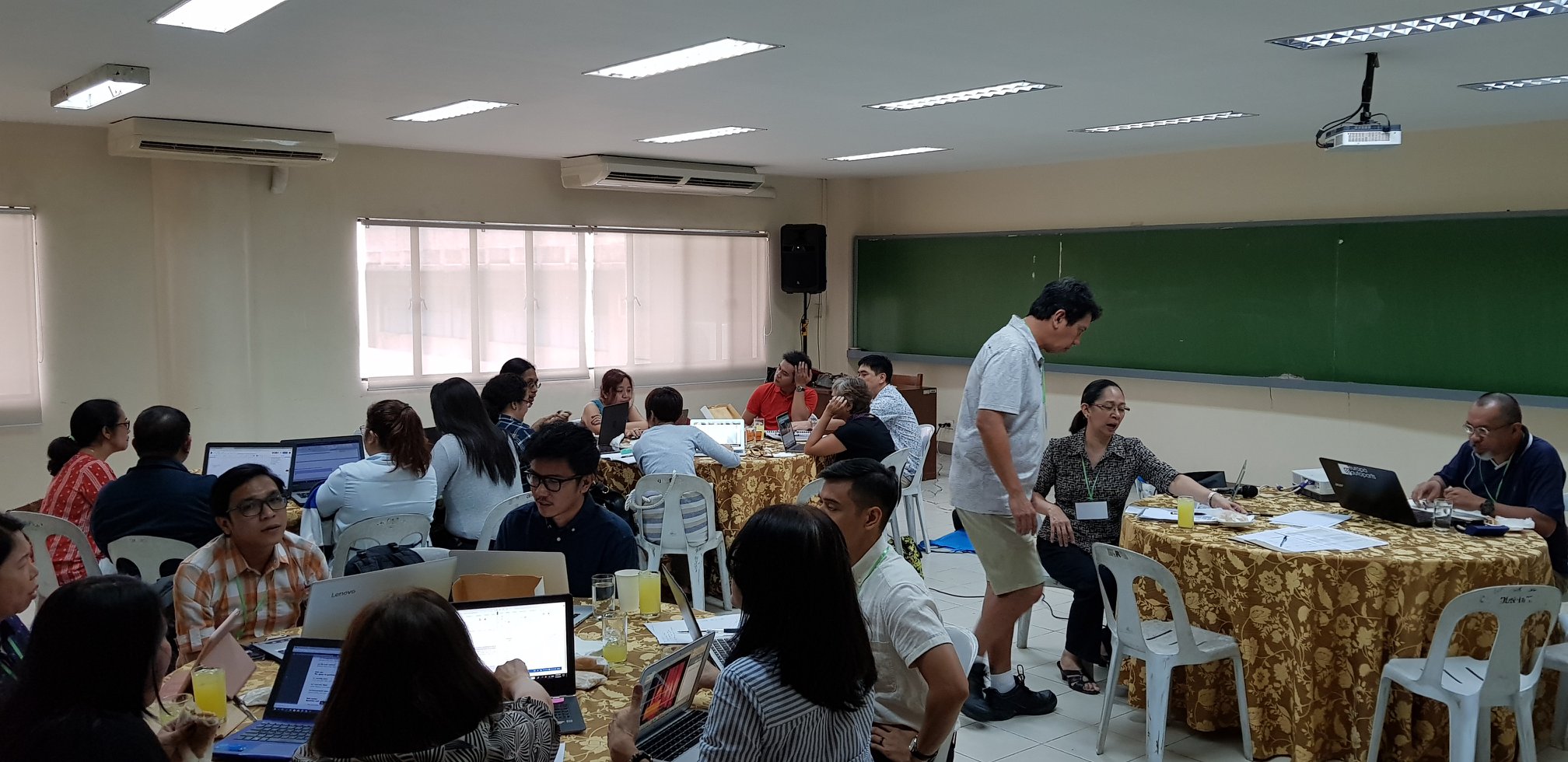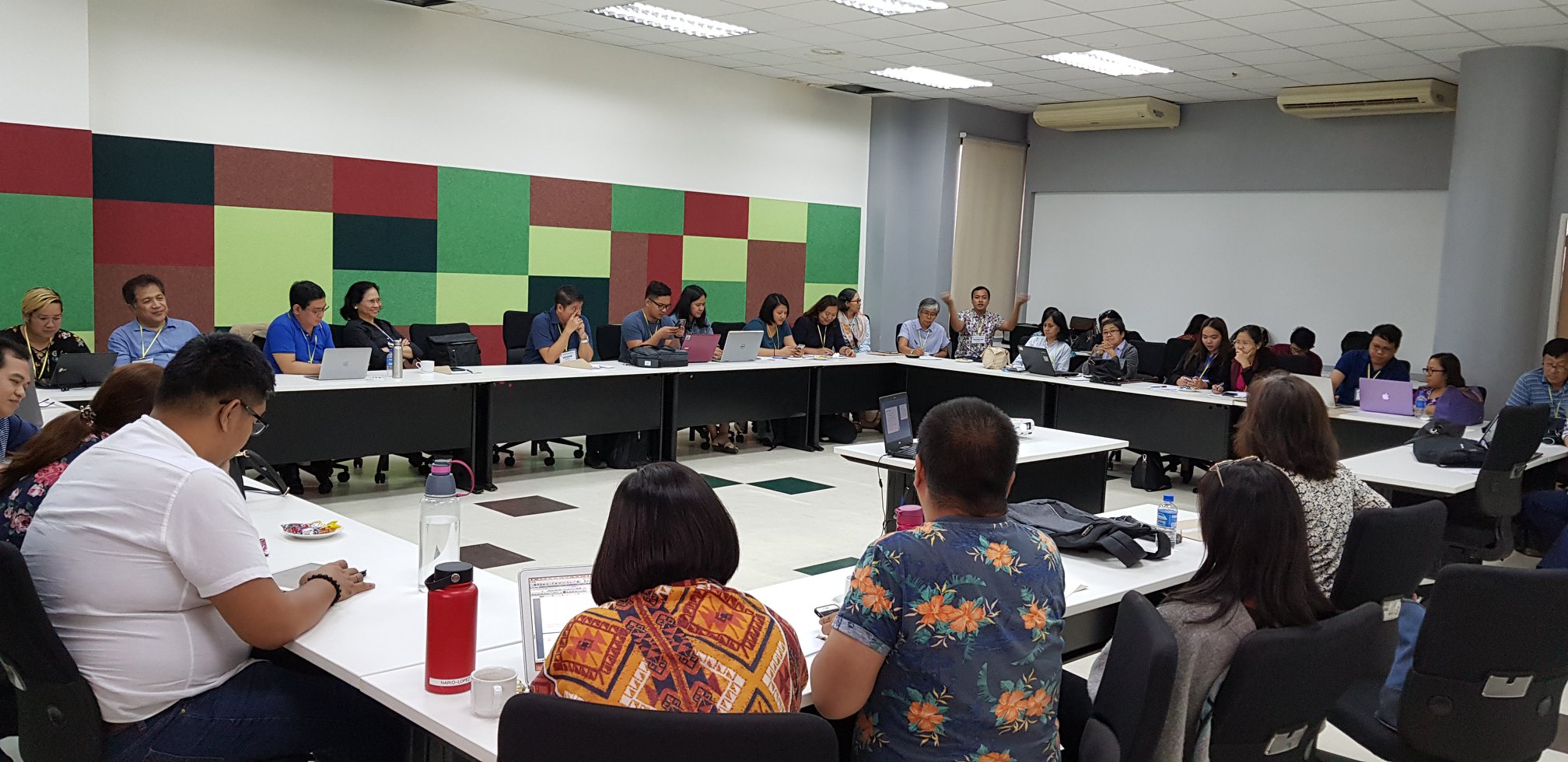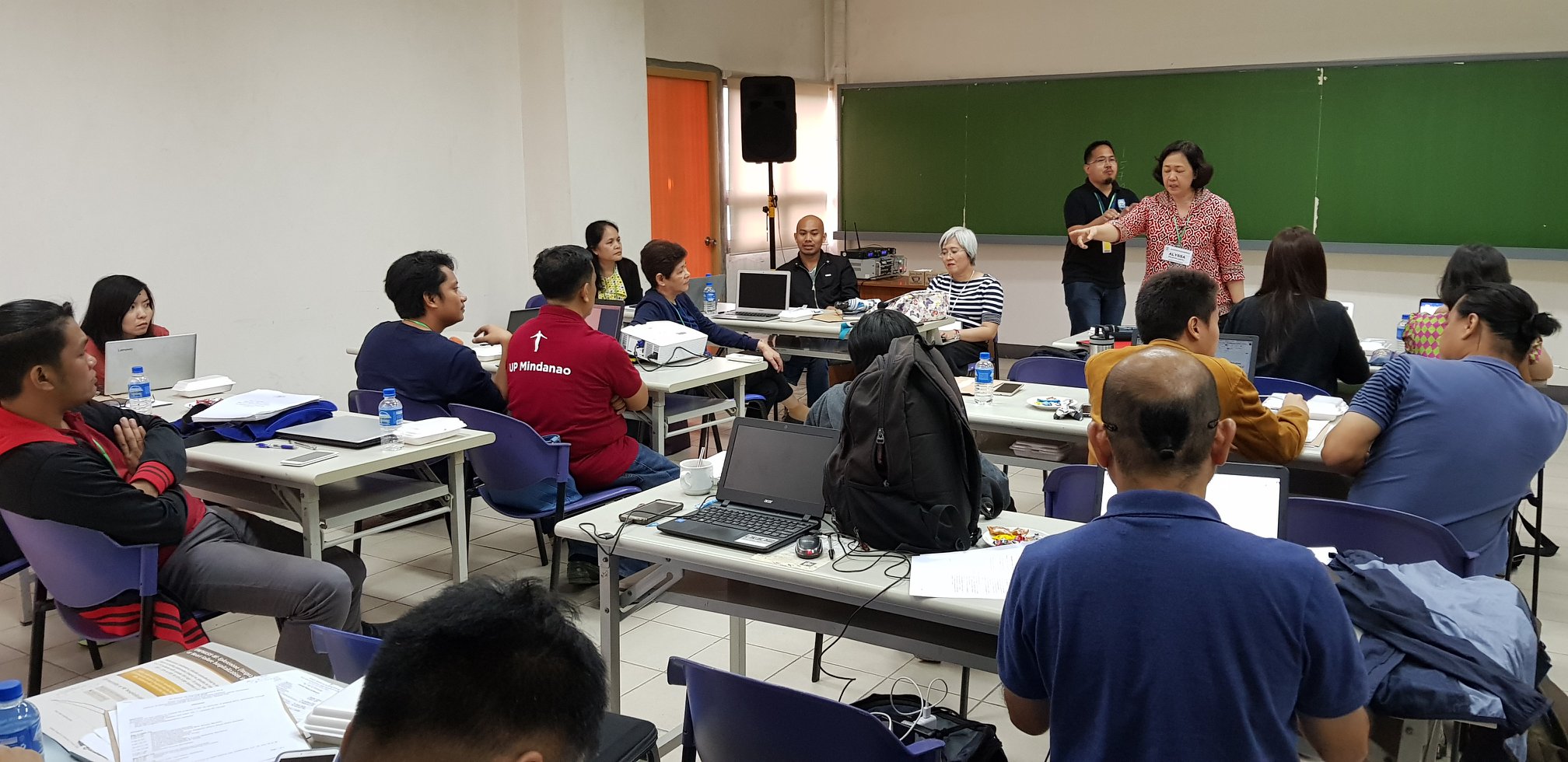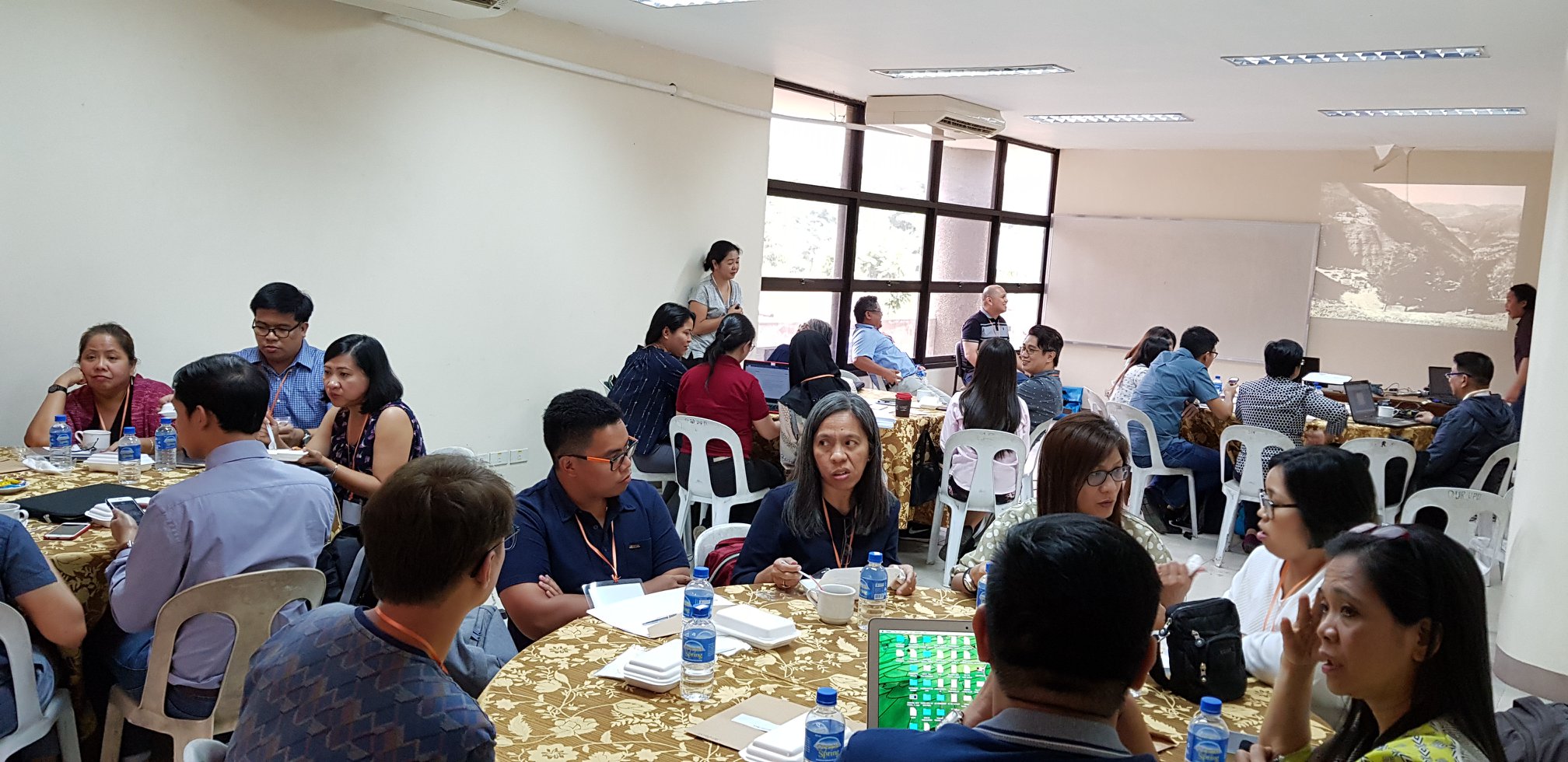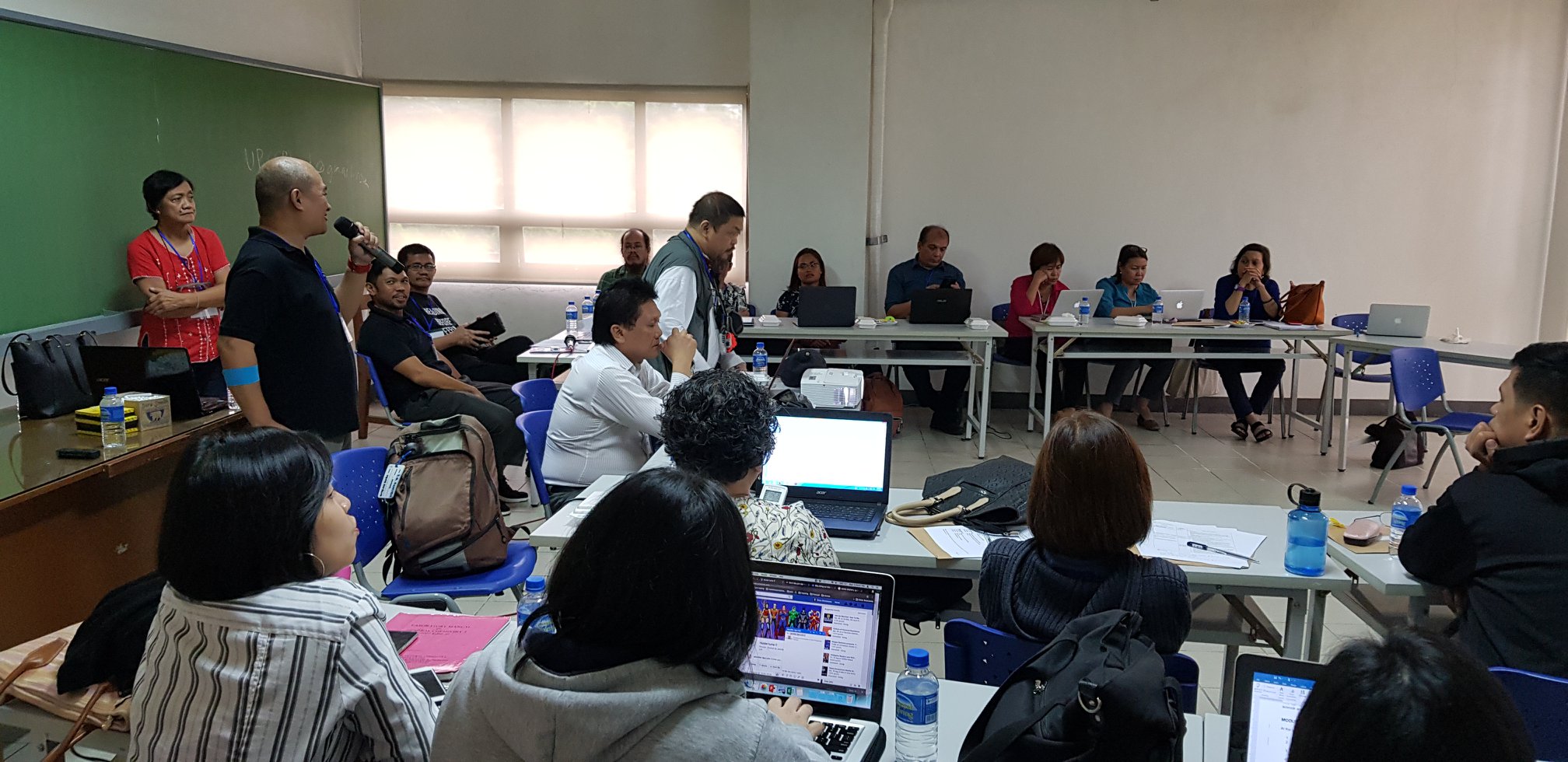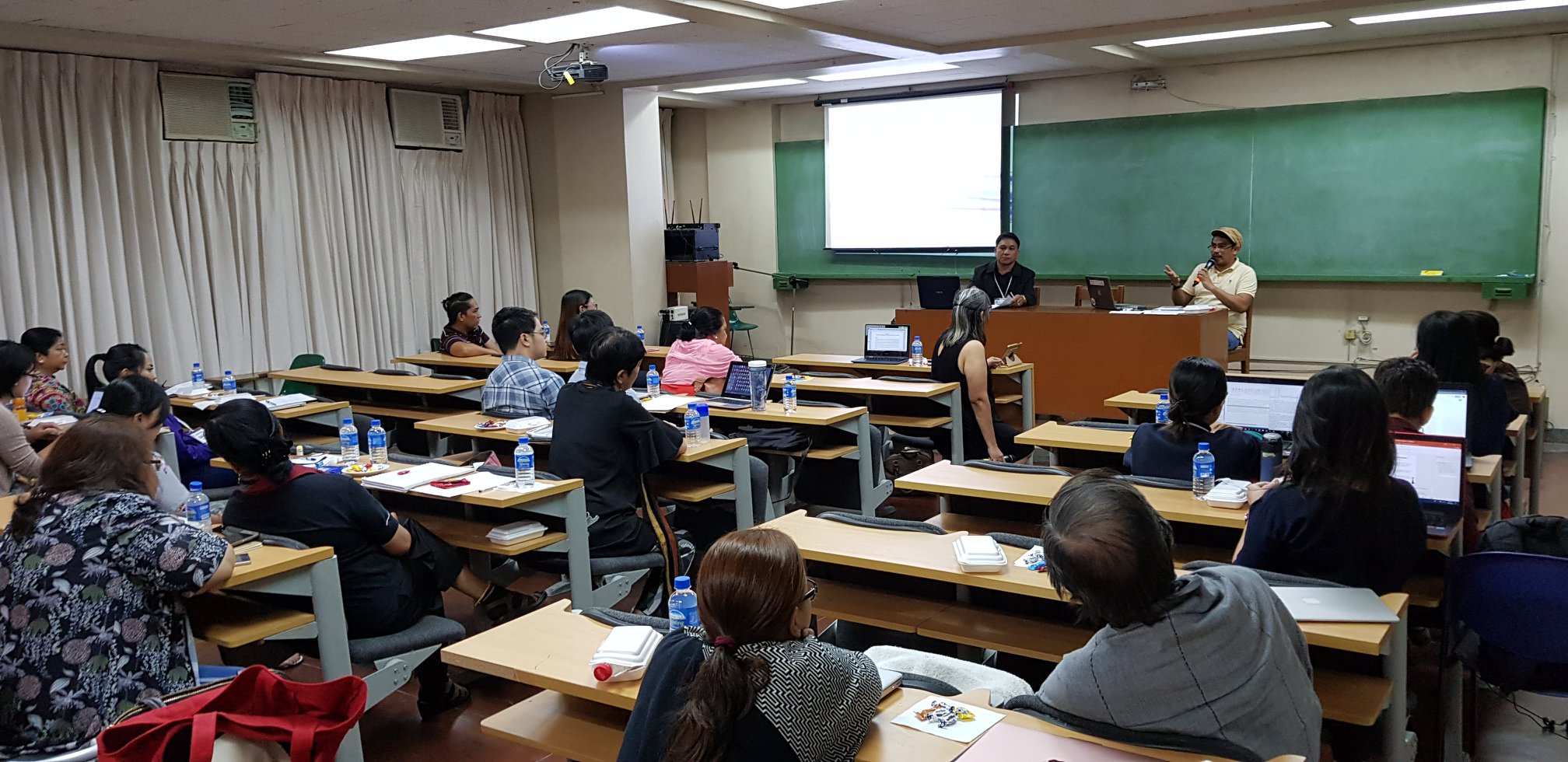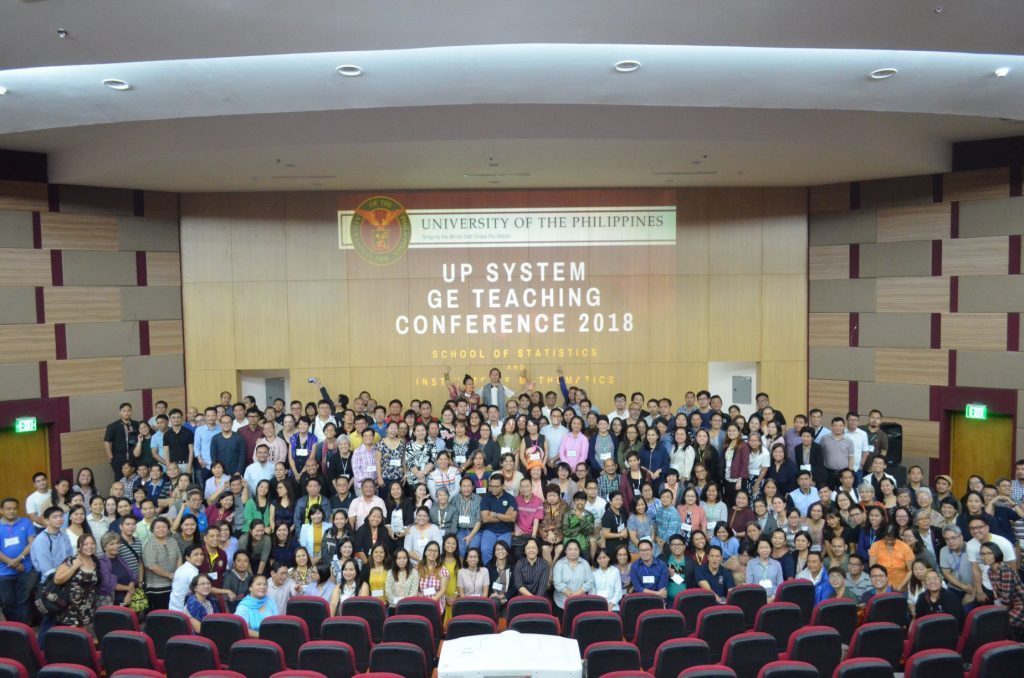
The Office of the Vice President for Academic Affairs, chaired by Vice President for Academic Affairs Dr. Maria Cynthia Rose B. Bautista, held a 3-day GE Teaching Conference last 11-13 January 2018 at the School of Statistics Auditorium, UP Diliman to discuss how the 11 GE Courses will be taught.
Professors from the eight Constituent Universities (UP Diliman, UP Manila, UP Los Banos, UP Visayas, UP Baguio, UP Mindanao, UP Open University, UP Cebu) were invited as guests for the conference.
VP Bautista presented the chronology of GE Revisions as an opening remark for the said conference. She then described what happened to each year starting from 1958 down to 2018. Bautista said that the “changing realities spurred by globalization” called for the paradigm shift. Further, UP needed to adopt a learning outcomes approach to GE because the “spirit underlying the GE objectives cannot be met without changing the way we look at our students and the way we teach.”
Asst. Vice President for Academic Affairs for Curriculum Alyssa M. Peleo-Alampay recalled the process of revision through a flowchart illustrating the development of the 11 GE courses. She stated that the program rollout should be by 1st Semester of AY 2018-2019.
From multiple consultations and mini-conferences at the CU level and three previous system-wide conferences—the first in 2014, the second in 2015 and the third in 2017 at which over 200 faculty members put together the course modules (OVPAA, 2018), the 11 GE Courses were developed namely:
- Critical Perspectives in Communication (COMM 10)
- Critical Perspectives in the Arts (ARTS 1)
- Ethics and Moral Reasoning for Everyday Life (ETHICS 1)
- Kasaysayan ng Pilipinas (KAS 1)
- Living Systems: Concepts and Dynamics (SCIENCE 11)
- Mathematics, Culture and Society (MATH 10), Philippine Arts and Culture (PHILARTS 1)
- Probing the Physical World (SCIENCE 10)
- Science,Technology and Society (STS 1)
- Self and Society (SAS 1) and,
- Wika, Kultura at Lipunan (WIKA 1).
Prof. Patricia B. Arinto, Chair, Technical Working Group for UP GE Program Implementation then presented the UP GE Framework, defining GE as the embodiment of “a liberal education for the Filipino.” GE pedagogy is governed by three principles: being learning-centered, resource-based learning, and interdisciplinary approach. Arinto also discussed the use of course packs/modules as a strategy in teaching GE courses.
Lastly, Associate Professor Fernando Paragas, member of the Technical Working Group presented the UP GE Program Assessment, which aims to monitor how GE courses are meeting the students’ learning outcomes, to evaluate how the GE program has met its expected program outcomes, and to assess the implementation of the GE program.
There will be two types of End-of-Semester Monitoring based on Learning Outcomes namely: Quantitative: Course Exit Surveys (to be administered online to two randomly-selected classes per GE course and Qualitative: FGDs (Student FGDs to be conducted per college and Faculty FGDs to be conducted during the GE Conference).
He also cited the Program Evaluation in 2022 based on Program Outcomes namely: Quantitative: Exit Surveys (to be administered online among randomly-selected: graduating student and GE faculty) and Qualitative: FGDs (Student FGDs to be conducted per college and Faculty FGDs to be conducted during the GE Conference).
The plenary sessions were conducted at the National Institute of Physics Auditorium while the 11 breakout sessions were held at the Institute of Mathematics, College of Science Complex, UP Diliman.
Breakout sessions allowed participants to examine and finalize the course modules especially the core or key texts for the required readings and the assessment of student learning and progress during and at the end of each course. (OVPAA, 2018)
The GE program was opened for review and revision after the proposed Revision of the GE Program was introduced in 2013. Changes aim to adapt the GE to global and regional developments and the K to 12 reform while remaining committed to its liberal, holistic and integrative and non-utilitarian orientation, and promotion of the loftiest principles of a UP education including pagiging makatao and pagiging makabayan (humanism and nationalism). (OVPAA, 2018)
Reference:
Course modules for revised GE program of UP finalized at system-wide conference

